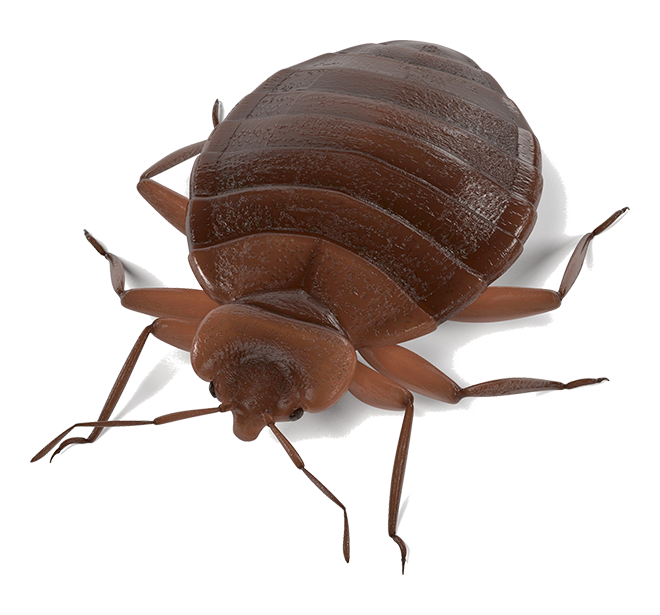Organic Pest Control in Ann Arbor
Ann Arbor Pest Control Company – Organic Pest Control Services
Looking to hire a pest control company in Ann Arbor, MI? American Pest Control provides organic pest control services for homes and business. Kill unwanted pests fast! Our company’s organic services work effectively for killing pests, while minimizing the impact on the environment.
Call American Pest Control to request a free pest control estimate in Ann Arbor, MI. Learn how Doc can help get rid of your pests quickly and prevention tips for the future. If you have any residential or commercial pest control problem in Ann Arbor, don’t wait to take action. Pests won’t just go away by themselves.
Ann Arbor Bed Bug Control, Get Rid of Bed Bugs Fast
American Pest Control has been dealing with bed bugs in Ann Arbor, MI for over 40 years. Nobody knows more about killing these evil little bugs. Call for a free consultation and have Doc and his expert team get rid of the bugs for good.
Worried about your family’s safety? American Pest Control eliminates bed bugs with a food grade product used to protect stored grain that we eat! And it works extremely well! Call us for a free consultation and quote in the Ann Arbor area.
Pest Control News from the Blog of Doc Pickhardt
BLACK-WINGED CARPENTER ANTS ARE QUEENS AND KINGS
Black-Winged Carpenter Ants (Order Hymenoptera)
General Pest Information:
Black swarming carpenter ants are usually seen in small numbers, that is, less than 100, and usually appear in the cooler part of a hot humid day. They are attracted to light and are usually found swarming around electric light bulbs or other light sources. The adult winged female is usually larger than the winged male. Placing a low pan of water, such as a pie pan, under the light source will attract the ants that are flying under the light source. The presence of winged carpenter ants is an indication that a colony has established itself in the nearby area. The carpenter ant colony is usually associated with damp, wet wood. In hunting for sources of infestation, pay particular attention to fireplace logs, hollow wood porch supports, or other wood members where moisture may have collected. Most infestations are difficult to find unless the source of moisture is rather evident. Metal flashing around chimneys, vents, roof valleys, and adjoining porches should be checked for leaks. Driving rain can sometimes cause moisture to be absorbed into hollow wood posts of porches, behind loose fitting boards, or un-caulked areas under and around windows, doors and other openings. The nesting area for these ants must be kept damp. Carpenter ants are often difficult to locate, since the point of entry may be quite a distance from the place where the galleries and nesting areas in the wood are located. Carpenter ant infestation is usually established in new locations, either by a fertile queen or through migration of all or part of an existing colony. Houses in wooded areas or in damp, humid locations are most likely to become infested, although they can at times infest dwellings in thickly populated areas of the city. Where an infestation has been established for a long time and the colony has grown to be a large one, usually numbering several thousand ants, structural damage may be extensive enough to require major repairs to the infested areas.
Carpenter Ant Life Cycle:
Carpenter ants prefer temperatures in the normal range of 70 to 90 degrees fahrenheit. A normal period from egg to adult is from 60 to 75 days. This growth rate may be slowed during the winter months. The winged adults are usually observed from the middle of May through summer and fall up to the first freezing temperatures. There may be more than one queen in a colony, especially in large colonies numbering two to three thousand worker ants. These ants may vary in length from 6mm to 15mm long. The colony is usually started by one queen who begins to pick her nest in damp decaying wood, in a hole dug in a tree, in the soil or under a rock. The wood damaged by carpenter ants has a tunneling effect, without the soil or mud placement as with subterranean termites. The tunnels or galleries of carpenter ants are irregular in shape, much like our caverns and caves in the earth, whereas the subterranean termite galleries follow the grain of the wood with a characteristic placement of soil. Branches of trees overhanging at the roof of a building are one common source of infestation. Most of the work in the carpenter ant colony is done by the small sexless workers. Carpenter ants do not feed on the wood that they infest. They only use the wood as a nesting place, from which they scavenge for food. Therefore sawdust will usually be found in the area immediately beneath the infestation. They will eat almost anything preferring liquids or fluids. Other insects, sugar, jelly, fruits, meats, grease, fats, plant juices, are all part of their diet.
How to Control Black-Winged Carpenter Ants:
One of the first things to be considered in carpenter ant control is to find the source of moisture and eliminate it. Carpenter ants have been known to nest in hollow core doors, around warm chimneys, and in the soil adjoining the building. Structural defects allowing moisture to get into the wood should be corrected immediately. Control of carpenter ants can be a very difficult problem if the infestation is enclosed in plastered or finished walls. Dusting powders into cracks and crevices of the walls, plus the use of liquid pesticides are very important. Where the location of the infestation permits, drilling into the infested area and applying a residual pesticide is very effective. Surface application of residual pesticide along baseboards, toe strips, around doorways and ant runways to the outside is very effective. An occasional ant may be observed after this treatment. Unless the source or colony can be found and destroyed, the customer should always be warned that application of residual pesticide is not an immediate instantaneous cure all for carpenter ant infestation. Stray insects from overhanging trees can continue to be an annoyance to the home owner, even though the infestation and colony have been eliminated. In sections where large wooded areas surround the dwelling, the owner should be warned that surface infestations may reappear. For this reason, regular periodic inspections and possible re-treatments are recommended.
Need Additional Help?
If you have any questions or would like further information on this subject, contact Doc Pickhardt of American Pest Control at: info@organicpestcontrolinmichigan.com
Organic and Standard Services Available!
Have a pest problem? Call us today for a quote and custom pest management solution!
1-(800) 404-3033
Request a Quote or Ask the Doc a Question!

Get Rid of Bed Bugs!
It’s tough to kill be bugs on your own. Learn how to avoid a bed bug epidemic and rid yourself from unwanted bed bugs. Learn More…
“I have been using your company to make sure that I don’t have any uninvited guests into my home for the past 14 years. I have found your service to be excellent with prompt professional service. Best of all, I have not had any problems with mice, ants or other trouble makers. A little prevention is the best cure. Thank you for your service.”
We Work The “Bugs” Out Of Your Life… Organically!
We're staffed by entomologists, urban pest managers and experienced technicians.
American Pest Control proudly serves the following areas in Michigan: Metro Detroit, Oakland County, Macomb, Saint Clair, Sterling Heights, Livonia, Southfield, Farmington Hills, Troy, Rochester, Birmingham, Royal Oak, Lake Orion, Oxford, Bloomfield, and more.
Cities Served
Adair
Addison
Algonac
Allen Park
Allenton
Almont
Anchor Bay Gardens
Anchor Bay Harbor
Anchor Bay Shores
Anchorville
Anderson
Ann Arbor
Armada
Atkins
Attica
Auburn Hills
Avalon Beach
Avoca
Azalia
Barton Hills
Bedore
Beech
Belle River
Belleville
Belleville North
Benton
Berkley
Berville
Beverly Hills
Bingham Farms
Birmingham
Blaine
Bloomfield
Bloomfield Hills
Bolles Harbor
Brandon
Bridgewater
Brighton
Broad Acres
Broadbridge Station
Brockway
Brookville
Burnside
Cady
Canton
Capac
Carleton
Casco Township
Center Line
Chalkerville
Chelsea
Cherry Beach
Cherry Hill
Cherry Island
Chesterfield
Chesterfield Shores
Chilson
Clarkston
Clawson
Clays Landing
Clifford
Clifton Mill
Clinton
Clinton Township
Cohoctah
Columbiaville
Columbus
Commerce Township
Cone
Davis
Dearborn
Dearborn Heights
Deer Creek
Deerfield Center
Delray
Denton
Detroit
Detroit Beach
Dexter
Diann
Disco
Dixboro
Dover
Dryden
Dundee
East Rockwood
Eastlawn
Eastpointe
Ecorse
Edgewater Heights
Elba
Elm
Emery
Emmett
Erie
Estral Beach
Evergreen Acres
Fair Haven
Fargo
Farmers Creek
Farmington
Farmington Hills
Fenton
Ferndale
Five Lakes
Flat Rock
Fleming
Forster
Fort Wayne
Foster
Fourmile Lake
Fowlerville
Frain Lake
Franklin
Fraser
French Landing
Garden City
Gardendale
Geddes
Gibraltar
Golfcrest
Goodells
Grafton
Grand View
Grand View Acres
Grande Pointe
Grape
Green Oak
Greenfield Village
Gregory
Grosse Ile
Grosse Pointe
Grosse Pointe Farms
Grosse Pointe Park
Grosse Pointe Shores
Grosse Pointe Woods
Groveland
Guthrie
Hadley
Hallers Corners
Hamburg
Hamtramck
Hand
Harper Woods
Hartland
Hawthorne
Hazel Park
Hell
Highland
Highland Park
Hillcrest Orchard
Holly
Howell
Hudson Mills
Hunters Creek
Huntington Woods
Ida
Ida Center
Imlay City
Independence
Jeddo
Jerusalem
Kaiserville
Keego Harbor
Keewahdin
Kerr Hill
Kimball
Kings Mill
La Salle
Lake Angelus
Lake Orion
Lakeland
Lakeport
Lakeside
Lambertville
Lambs
Lanewood
Lapeer
Lathrup Village
Leonard
Lesterville
Liberty Corners
Lima Center
Lincoln
Lincoln Park
Livonia
London
Lottivue
Lulu
Lum
Luna Pier
Lyndon Center
Lyon
Macomb
Madison Heights
Manchester
Maple Beach
Maple Leaf
Marine City
Martinsville
Marysville
Maybee
Meade
Melvindale
Memphis
Metamora
Metro Detroit
Milan
Milford
Miller
Milleville Beach
Milton
Monroe
Mooreville
Mount Clemens
Mount Vernon
Muirs
Muttonville
New Baltimore
New Boston
New Haven
Newport
Nicholson
North Branch
North Lakeport
North Shores
Northville
Norton
Notten
Novi
Oak
Oak Grove
Oak Park
Oakland
Oakland Township
Oakville
Oldport
Orchard Lake
Orion
Orion Township
Ortonville
Ottawa
Otter Lake
Oxford
Paint Creek
Parishfield
Parkers Corners
Parshallville
Patterson Gardens
Pearl Beach
Perch Point
Peters
Petersburg
Petersburg Junction
Pettysville
Pinckney
Pittsfield
Plainfield
Pleasant Ridge
Plymouth
Point Lakeview
Pointe aux Chenes
Pointe aux Tremble
Pontiac
Port Huron
Preston Corners
Rattle Run
Rawsonville
Ray Center
Redford
Richmond
Riley Center
River Rouge
Riverside
Riverview
Roberts Landing
Rochester
Rochester Hills
Rockwood
Rogers Corner
Romeo
Romulus
Rose
Roseville
Roulo
Royal Oak
Ruby
Rushton
Saint Anthony
Saint Clair
Saint Clair Haven
Saint Clair Shores
Salem
Saline
Samaria
Sans Souci
Scio
Scofield
Sebille Manor
Sharon Hollow
Shelby
Shelby Charter Township
Sheldon
Smiths Creek
Snyderville
South Lyon
South Monroe
South Park
South Rockwood
Southfield
Southgate
Sparlingville
Springfield
Stark
Starville
Steiner
Sterling Heights
Stony Creek
Stony Point
Strasburg
Sunnyside
Sylvan Center
Tappan
Taylor
Temperance
Thornton
Thornville
Trenton
Troy
Unadilla
Utica
Vienna
Vienna Junction
Wadhams
Waldenburg
Wales Center
Walled Lake
Waltz
Warren
Washington
Washington Township
Waterford
Wayne
Wayne County
West Bloomfield
West Monroe
West Sumpter
West Tappan
Westland
White Lake
Whiteford Center
Whitmore Lake
Whittaker
Williamsville
Willis
Willow
Willow Run
Wixom
Wolcott Mills
Wolverine Lake
Woodhaven
Woodland Beach
Worden
Wyandotte
Yale
Yargerville
Ypsilanti
Location
1012 Elmsford
Troy, MI 48083
Phone
info@organicpestcontrolinmichigan.com
